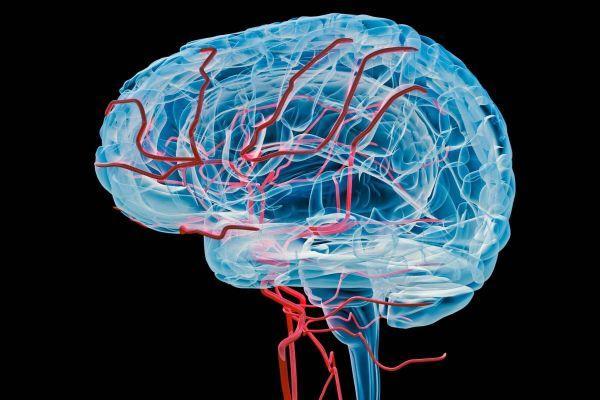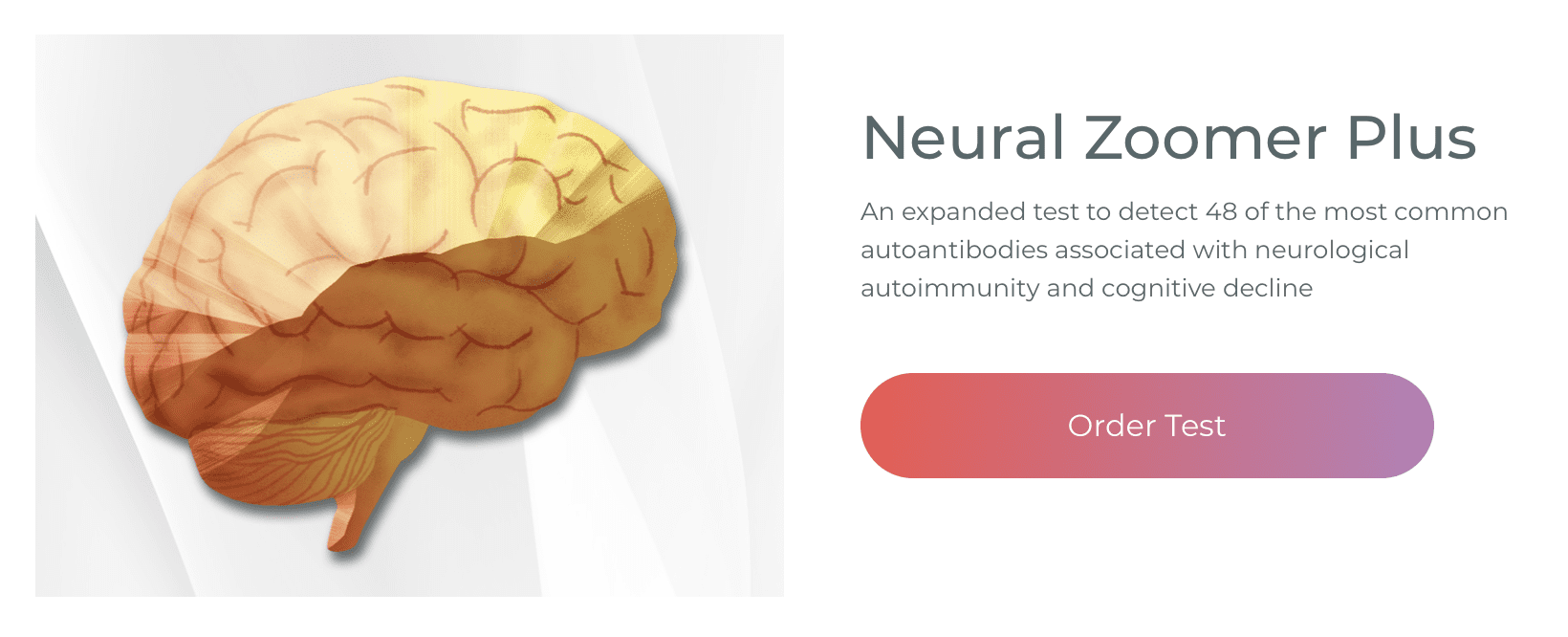How often do you feel agitated, easily upset, and nervous between meals? How often do you have difficulty concentrating before eating? How often does your energy level drop in the afternoon? Inflammation associated with a leaky blood-brain barrier can cause a variety of brain health issues. Our brain is a complex organ that controls various structures and functions of our body, from our memory to our breathing, muscle movements, and hormones.
Unfortunately, brain health issues are common in our society. According to the National Institute of Mental Health, approximately 20 percent of adults in the United States have a brain health issue and American adults spend about $113 billion on treatment every year. Additionally, these statistics don't even include the treatment cost of autoimmune brain health issues, such as Alzheimer's disease, Parkinson's disease, multiple sclerosis, and autism. In the article below, we will discuss how inflammation is associated with a "leaky" blood-brain barrier and what you can do to improve a variety of brain health issues.
"Leaky" Blood-Brain Barriers and Inflammation
Scientists have previously discussed how leaky gut syndrome, a well-known digestive health issue that affects the lining of the gastrointestinal (GI) tract, can be associated with various health issues. However, current research studies have shown that leaky gut syndrome may also be associated with a leaky blood-brain barrier or the breakdown of the blood-brain barrier. The gut-brain connection ultimately suggests that a "leaky gut" may cause a "leaky brain".Biomarkers using the proteins occludin and zonulin can help determine the presence of leaky gut syndrome and a leaky blood-brain barrier. Scientists have demonstrated that increased antibodies against occludin and zonulin are one way to determine leaky brain syndrome. Scientists have also demonstrated that a molecule known microRNA-155 can increase with inflammation. MicroRNA-155 can ultimately cause microscopic gaps to develop in the blood-brain barrier that permitted passage to "harmful" components. This permeability can trigger the brain's immune system and cause brain inflammation.
Various research studies from the cytokine model of cognitive function evaluated how brain inflammation and a leaky blood-brain barrier may be associated with cases of anxiety, depression, brain fog, and autoimmune brain health issues. By way of instance, scientists evaluated how inflammation can decrease the activation of brain cells in the frontal lobe of people with depression. In cases of brain inflammation, using drugs and/or medications, such as antidepressants, are frequently ineffective because they aren't treating the underlying brain inflammation. If a patient suffers from anxiety, depression, brain fog, or autoimmune brain health issues, many healthcare professionals may suggest the presence of a leaky brain or a leaky blood-brain barrier.
8 Steps to Improve a Leaky Blood-Brain Barrier
Inflammation and a leaky blood-brain barrier may ultimately cause a variety of bran health issues if it's misdiagnosed and left untreated. If you suspect you may have anxiety, depression, brain fog, or autoimmune brain health issues due to inflammation associated with a leaky blood-brain barrier, it's important to talk to a healthcare professional to receive proper diagnosis and treatment. Fortunately, there are steps you can take to improve a leaky blood-brain barrier:- Evaluate your blood-brain barrier by conducting labs for blood-brain barrier proteins, which can show BBB permeability, occludin and zonulin, which can show the antibodies against these proteins, homocysteine, which shows blood-brain barrier damage or injury through the increased levels of this amino acid, and brain agers like inflammation, which can accelerate the aging of the brain. High blood sugar may also show BBB permeability.
- Determine a "leaky" blood-brain barrier by conducting microbiome labs. A "leaky gut" can cause a "leaky brain". Understanding the gut-brain axis can help determine the presence of any underlying brain health issues. Bacterial imbalances and yeast overgrowths can cause neurological symptoms. By way of instance, anxiety and depression are associated with the bacteria known as Lactobacillus helveticus and Bifidobacterium longum.
- Prevent yourself from eating foods, such as processed, refined and sugary foods as well as other toxins, that can cause a leaky blood-brain barrier.
- Regulate stress for overall brain health. Research studies ultimately suggest that acute stress can increase the breakdown of the blood-brain barrier. Tai chi, yoga, and mindfulness meditation are several effective ways to help manage stress for the overall well-being of the human brain.
- Take natural compounds, such as apigenin, baicalein, catechins, curcumin, luteolin, resveratrol, and rutin, that have all been suggested to reduce brain inflammation. However, because the correct dosage will be different for everyone, make sure to talk to a doctor before taking natural medicine.
- Participate in exercise and physical activity that can help increase a brain-derived neurotrophic factor, BDNF, which helps promote brain health.
- Reduce your consumption of alcohol. Alcohol can stress the brain and several research studies suggest that it can affect the blood-brain barrier.
- Consider visiting a functional medicine practitioner to improve a leaky blood-brain barrier. While there's no immediate fix for many chronic brain health issues, functional medicine customizes diagnostics and natural protocols based on your unique needs to help promote overall well-being.
The brain is protected by the blood-brain barrier, however, this security system can frequently prevent drugs and/or medications from being able to effectively treat brain health issues. Scientists have started working towards developing successful ways to allow treatments to penetrate the blood-brain barrier. Other research studies have demonstrated that the aging brain or neurodegeneration can cause the breakdown of the blood-brain barrier. However, research studies have demonstrated ways to restore and even reverse leaky blood-brain barriers and several brain health issues. Patients can take several steps to help improve a leaky blood-brain barrier. - Dr. Alex Jimenez D.C., C.C.S.T. Insight
How often do you feel agitated, easily upset, and nervous between meals? How often do you have difficulty concentrating before eating? How often does your energy level drop in the afternoon? Inflammation associated with a leaky blood-brain barrier can cause a variety of brain health issues. Our brain is a complex organ that controls various structures and functions of our body, from our memory to our breathing, muscle movements, and hormones.
Unfortunately, brain health issues are common in our society. According to the National Institute of Mental Health, approximately 20 percent of adults in the United States have a brain health issue and American adults spend about $113 billion on treatment every year. Additionally, these statistics don't even include the treatment cost of autoimmune brain health issues, such as Alzheimer's disease, Parkinson's disease, multiple sclerosis, and autism. In the article above, we discussed how inflammation is associated with a "leaky" blood-brain barrier and what you can do to improve a variety of brain health issues.
The scope of our information is limited to chiropractic, musculoskeletal, and nervous health issues or functional medicine articles, topics, and discussions. We use functional health protocols to treat injuries or disorders of the musculoskeletal system. Our office has made a reasonable attempt to provide supportive citations and has identified the relevant research study or studies supporting our posts. We also make copies of supporting research studies available to the board and or the public upon request. To further discuss the subject matter above, please feel free to ask Dr. Alex Jimenez or contact us at 915-850-0900.
Curated by Dr. Alex Jimenez
References:
- Cole, William. “Signs You Might Have A ‘Leaky Brain’ + What To Do About It.” Mindbodygreen, Mindbodygreen, 22 July 2015, www.mindbodygreen.com/0-20800/signs-you-might-have-a-leaky-brain-what-to-do-about-it.html.
Additional Topic Discussion: Chronic Pain
Sudden pain is a natural response of the nervous system which helps to demonstrate possible injury. By way of instance, pain signals travel from an injured region through the nerves and spinal cord to the brain. Pain is generally less severe as the injury heals, however, chronic pain is different than the average type of pain. With chronic pain, the human body will continue sending pain signals to the brain, regardless if the injury has healed. Chronic pain can last for several weeks to even several years. Chronic pain can tremendously affect a patient's mobility and it can reduce flexibility, strength, and endurance.Neural Zoomer Plus for Neurological Disease
Dr. Alex Jimenez utilizes a series of tests to help evaluate neurological diseases. The Neural ZoomerTM Plus is an array of neurological autoantibodies which offers specific antibody-to-antigen recognition. The Vibrant Neural ZoomerTM Plus is designed to assess an individual’s reactivity to 48 neurological antigens with connections to a variety of neurologically related diseases. The Vibrant Neural ZoomerTM Plus aims to reduce neurological conditions by empowering patients and physicians with a vital resource for early risk detection and an enhanced focus on personalized primary prevention.
Food Sensitivity for the IgG & IgA Immune Response
Dr. Alex Jimenez utilizes a series of tests to help evaluate health issues associated with food sensitivities. The Food Sensitivity ZoomerTM is an array of 180 commonly consumed food antigens that offers very specific antibody-to-antigen recognition. This panel measures an individual’s IgG and IgA sensitivity to food antigens. Being able to test IgA antibodies provides additional information to foods that may be causing mucosal damage. Additionally, this test is ideal for patients who might be suffering from delayed reactions to certain foods. Utilizing an antibody-based food sensitivity test can help prioritize the necessary foods to eliminate and create a customized diet plan around the patient’s specific needs.
Gut Zoomer for Small Intestinal Bacterial Overgrowth (SIBO)
Dr. Alex Jimenez utilizes a series of tests to help evaluate gut health associated with small intestinal bacterial overgrowth (SIBO). The Vibrant Gut ZoomerTM offers a report that includes dietary recommendations and other natural supplementation like prebiotics, probiotics, and polyphenols. The gut microbiome is mainly found in the large intestine and it has more than 1000 species of bacteria that play a fundamental role in the human body, from shaping the immune system and affecting the metabolism of nutrients to strengthening the intestinal mucosal barrier (gut-barrier). It is essential to understand how the number of bacteria that symbiotically live in the human gastrointestinal (GI) tract influences gut health because imbalances in the gut microbiome may ultimately lead to gastrointestinal (GI) tract symptoms, skin conditions, autoimmune disorders, immune system imbalances, and multiple inflammatory disorders.
Formulas for Methylation Support
XYMOGEN’s Exclusive Professional Formulas are available through select licensed health care professionals. The internet sale and discounting of XYMOGEN formulas are strictly prohibited.
Proudly, Dr. Alexander Jimenez makes XYMOGEN formulas available only to patients under our care.
Please call our office in order for us to assign a doctor consultation for immediate access.
If you are a patient of Injury Medical & Chiropractic Clinic, you may inquire about XYMOGEN by calling 915-850-0900.
For your convenience and review of the XYMOGEN products please review the following link. *XYMOGEN-Catalog-Download
* All of the above XYMOGEN policies remain strictly in force.












